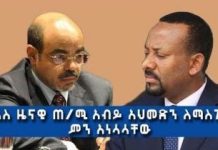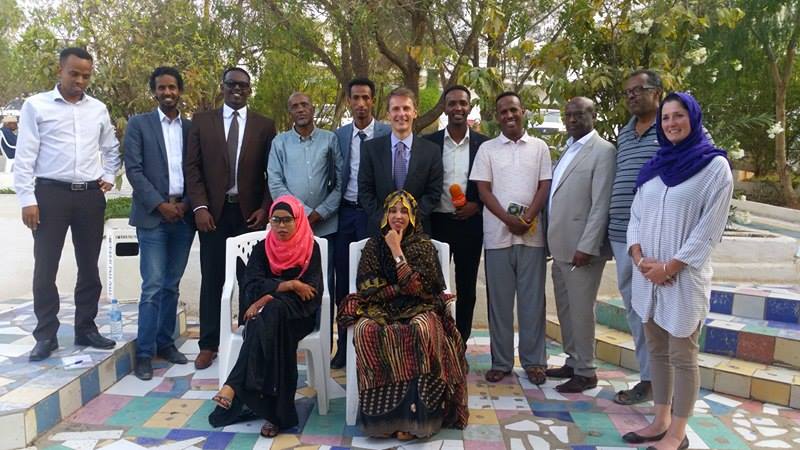March 21 – A top British official said on Tuesday that Somaliland would not be invited to a donor conference on Somalia in May because it had repeatedly postponed Presidential elections.
“There was an opportunity for a new government to come to the conference if the elections had been held in March, as promised, “Deputy British Ambassador Andrew Allen told journalists in Hargeisa.
“But the elections have been postponed again and again and will not take place until November. So, we cannot invite the current government. We wanted to work with a new government because the conference will pledge aid for the next four years.”
The polls were to have been held in March this year but were postponed. The government said that a critical drought had displaced so many people that proper elections were not feasible as many voters had fled their homes.
Allen said he understood the problems the drought caused the organisation of polls but pointed out this was just the latest in a series of postponements, including elections to the National Assembly, which has been in place for more than a decade and will not face re-election now until November 2019.
Allen said he had voiced Britain’s concern in his talks about the continued arrest and detention of journalists and erosion of the freedom of speech and freedom of assembly.
The Human Rights Centre, an independent body, says arrests of 26 journalists in 2016 was slightly down on the previous year’s figure but the profession still felt vulnerable to arbitrary arrest and detention.
He said Britain was also concerned about the government’s transparency about major decisions it has been taking, including an agreement this week between Somaliland and the United Arab Emirates to establish a military base near the coastal city of Berbera. The Somaliland government has released few details about the agreement.
“The same small number of people responsible for the delay in elections are the same small number of people responsible for the agreement with the UAE. The people of Somaliland need more information on this base. What are the benefits? What are the risks?”
Allen said one risk was that Somaliland would become a target for extremists in the region, as well as “a whole set of regional relationships inlcuding those with Ethiopia, Djibouti and Somalia itself.
“It’s difficult for the people of Somaliland to make their assessment of these risks because the information is just not available,” he said.
Allen acknowledge that many of top Somaliland officials had British passports and said that they were liable to prosecution under the UK bribery laws if found to have received money illegally.
He was speaking in response to fears among many Somalilanders that people in power are abusing their office to enrich themselves and transferring money overseas.
Allen said the UK government had pledged 110 million sterling to combat drought in the Horn of Africa and that assistance of this sort went directly to people in need, not through governments and that no political criteria were attached to humanitarian assistance.
Allen, who is based in Mogadishu, Somalia, but also has responsibility for the breakaway state of Somaliland, said he had expressed Britain’s concerns in talks with senior Somaliland officials including Minister of the Presidency Mohammed Hashi.






























